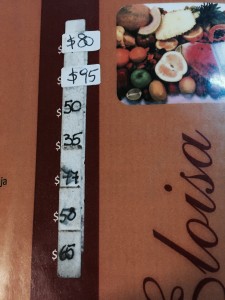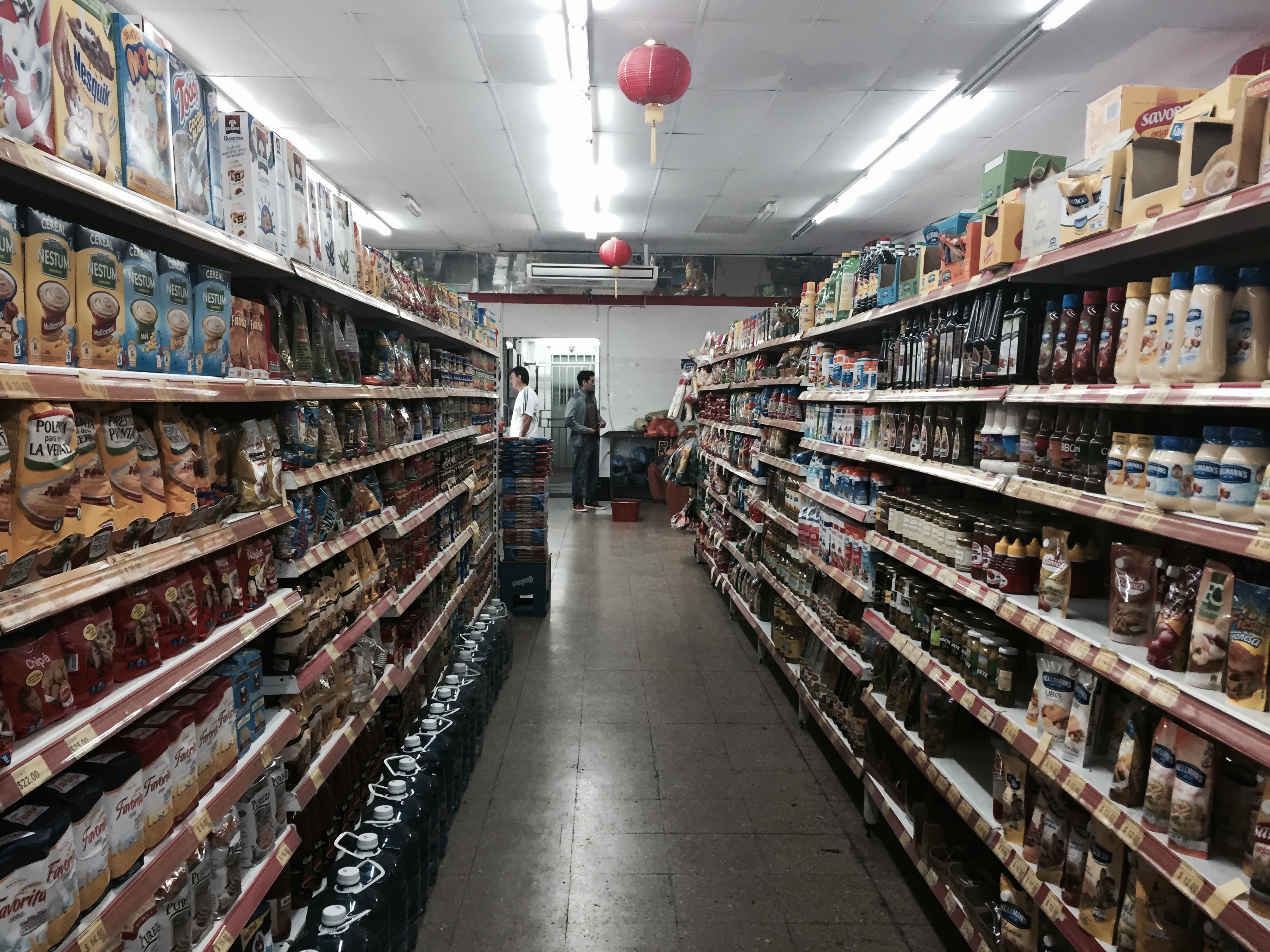BUENOS AIRES, Argentina — Alex Olivares, who just paid a morning visit to a supermarket near his place in the Palermo neighborhood of Buenos Aires, Argentina, had a bottle of milk in his hands.
“You might have a bottle of milk at 12 pesos and the next week you would find it 14 pesos,” the 27-year-old shopper shrugged and said. “You can do nothing about it.”
Martin Guo, a Chinese immigrant who arrived in Argentina 11 years ago, owns three supermarkets in Buenos Aires, including one in Recoleta, an affluent neighborhood of the city. “The price of everything is increasing,” he said.
“That bottle of beer used to be 15 pesos during the World Cup last summer,” Guo pointed to a refrigerator near the checkout counter and said, “now it is sold at 22 pesos.”
According to the official exchange rate, 1 U.S. dollar trades for 8.8 pesos. But in black markets, 1 dollar can trade for 12.5 pesos.
Whereas in the U.S., the year-over-year inflation rate is well below 2 percent and there was even deflation in January, Argentina experienced an inflation rate as high as 40 percent last year, according to local private research firms. The price hike has slowed down in 2015, but is still around 30 percent compared to a year ago.
In 2014, Argentina had the second-highest inflation rate in Latin America, only behind Venezuela.
“Many things happened here would be shocking in other countries,” said Ignacio Labaqui, professor of the Political Science and International Relations Department of Pontifical Catholic University of Argentina. “(But) people have grown used to economic crises, massive currency devaluations and high inflation. Therefore, what in other countries could be economically and politically disturbing or problematic, down here is not so.”
The country’s current problems with inflation were caused by both “money printing to finance fiscal deficit and economic overheating,” said Luciano Cohan, chief economist at Buenos Aires-based economic research firm Elypsis.
“People has got used to inflation and it tends to become less distortive than what it might sound in the first place,” said Cohan.
Making things worse, the government’s consumer price index is seen as questionable. Opposition parties in the Argentine Congress have been publishing their own index to challenge the official data since 2011. Private firms, including Elypsis, also have their own measurements.
The International Monetary Fund accused the Argentine government for inaccuracy in 2013, which pushed the government to publish a new consumer price index in early 2014. But still, the congressional data could be twice as high as the official data.
“For the past eight years, we did not know what the inflation rates actually were, since the official statistic is not reliable,” said Labaqui. “That has led to a mushrooming of private consultant’s consumer price indices, which has filled the space left by the discredited official inflation estimate.”
Ordinary Argentines have to have their own ways of combating inflation. Some people have turned to cheaper brands and compromised on the quality of goods. Other people choose to invest in real estate market or convert pesos to U.S. dollars.

On a drink menu of a Buenos Aires cafe, layers of price tags show the highly inflated prices. (Photo by Lei Xuan / Medill)
Some companies adjust wages based on inflation rates once or even twice a year.
In addition, unions represent employees to negotiate wages with the national government on an annual basis. Unions are powerful organizations in Argentina, although recent news shows that they are having tough salary negotiations with the government.
According to the congressional index, the annual inflation rates were at around 25 percent from 2011 to 2013, but the 2014 rate was elevated to about 40 percent. As a result, the wage growth could easily fall behind, said Cohan.
“There are no real wisdoms to deal with inflation,” Labaqui said. “Inflation is a problem that must be addressed by the government.”
“The next government should stop printing money to finance fiscal deficits,” said Fernando Santillan, content director of Fundacion Pensar, a think tank of opposition party Republican Proposal (PRO). “The central bank should gain independence and a good inflation-targeting policy should be implemented in time.”
PRO’s leader Mauricio Macri, the current mayor of Buenos Aires, is a presidential hopeful for this year’s general election.
“I am sure the inflation issue should be important in next government’s agenda,” said Santillan, though he was not directly involved in Macri’s presidential campaign.
High inflation is one of the biggest problems through Argentina’s history. Nevertheless, it has become anything but normal in the country.
“People can muddle through certainly,” said Labaqui, “but persistent and sustained inflation, no matter what strategies consumers resort to, ends up deteriorating the living standards of the population.”
Experts warned that high inflation rate means not only low real wages, but also an obstacle to long-term planning and investment. Higher inflation usually makes people less incentive to save money and want to spend money as quickly as they can. That will in turn cause inflation even higher.
In Guo’s supermarket, customers came and went with bags of goods. It seemed that they never hesitated to buy what they needed despite the soaring prices.
Guo said he would adjust the prices according to the prime costs. Since his store is located at the center of the city, the rent is as high as 70 thousand pesos a month. Guo would sell goods at a higher price to keep profits.
“My supermarket sells daily necessities,” Guo said, “I do not worry that higher prices would deter customers. Argentines have got used to the price hike.”

